I made the leap to experience living in France two years after I graduated from University. I was excited to experience French culture and life, but had no idea I’d learn so much about French food culture specifically.
A friend of mine had just finished a year as an Au Pair in the south of France, and hearing her stories convinced me that this was something I needed to do. Well, the living in France part, not the Au Pair part. I found a job teaching English to adults instead.
And what an experience it was. I lived with a retired French couple in a small village in eastern France. My hosts, Gerard and Sophia, embraced French food culture and loved to share this with their curious new house guest.
I learned so much about French food, French culture and French cooking from them.
And there were others too. The people and families I met, dined with and talked to for hours along the way. I always was a sponge for information and the French love the opportunity to share their food and culture with those who are interested.
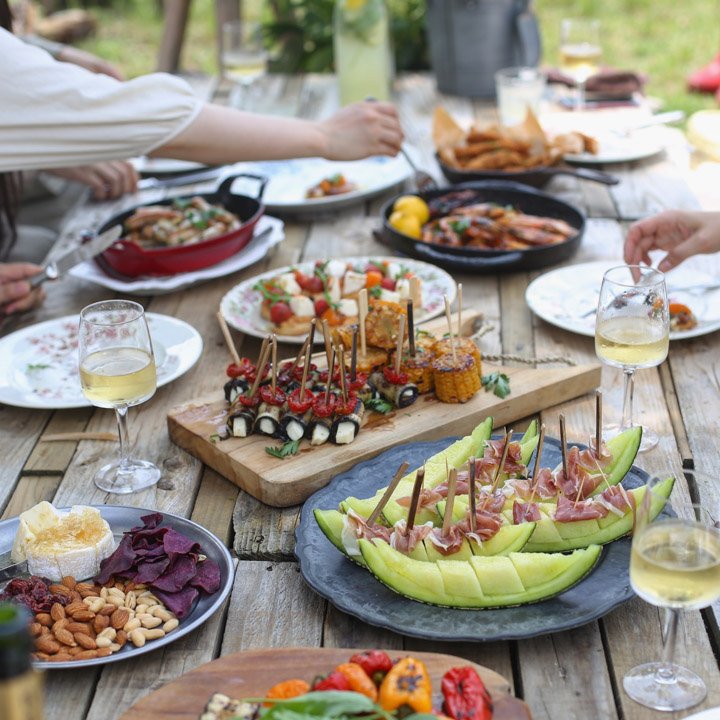
Years later I still bring what I learned to my own cooking back in the United States, and the farm-to-table recipes I share here at Fed by the Farm.
What French Food Culture Taught Me
While living in France I really came to admire French eating habits even more than French cuisine specifically. There’s a nuanced difference between French food versus the culture around food in France.
I’m sure you’ve heard that French people enjoy lighter meals and have a strong appreciation of good food and seasonal ingredients. And this is accurate.
So what did French food culture teach someone from North America about food, cooking and dining?
1. Cook with the best ingredients, and let them shine
Ingredients are celebrated in France in a way I haven’t encountered elsewhere.
Knowing where to find the best of anything is a point of pride in French food culture.
It would not be uncommon for a mealtime discussion to revolve around the butter selected to make the crust of the quiche, if it came from Brittany, which is known for having the best butter in the country (or the world depending on who you ask).
The French have a great deal of respect for high quality ingredients. This could be the jambon on the baguette, the vegetables to make the soup, the salt to season it, or the bakery where the bread was made.
Knowing where to find the best of anything is a point of pride in French food culture.
Starting with ingredients that are delicious, by their own merit, means that the best meals are surprisingly simple. And this allows those ingredients to shine.
Time and time again I was astounded by how delicious the most “simple” dishes actually were. The French know that when ingredients are chosen for quality and flavor first, it’s not necessary to season meals to death.
Ask anyone who has been to France about a bakery-made baguette with ham and butter.
2. Eat to enjoy the food, not to “fill up”
The French eat to enjoy the food, rather than to “fill up” their hungry stomachs.
In fact, eating in order to be “full” was frowned upon. If you had a second helping of dinner it should be because the meal was so delicious, not because you’re still hungry.
Here in the United States we often say “I’m so full” after a delicious meal. Or we might respond with “I’m too full” if offered a second helping.
In France that phrase is tacky. Instead you would say “No thank you, I’ve eaten enough.”
In France it’s tacky to say “I’m full”.
My French hosts, Gerard in particular, loved to share about French food culture and how the French eat. I remember on our way to a dinner party hosted by a very formal French family, he gave me a heads up that if I am offered a second helping of a dish it is only appropriate to accept after being offered three times.
I don’t know that three was a magic number, it was more so the act of insisting to decline rather than jumping at a chance to gorge oneself on the food. He added that if I do take another helping, I should say it’s only because the food is so delicious.
In other words, you’re not having another helping because you want to fill up your stomach, you’re having another helping for the experience of enjoying more.
And friends, it happened. It happened exactly as he described it while sitting at a long table in a beautiful courtyard with twenty plus other people. And …of course I wanted more, this was some of the best food I’d ever had in my life!
But I waited until it was offered three times before I accepted with “only because the food is so delicious” (spoken in French of course). Every head at the table turned towards me remarking on my fine etiquette.
I kid you not.
3. Dining is an experience, savor it
If you’re a slow eater, like me – or put better, someone who enjoys savoring their meal and good company, you’ve probably experienced a waiter or waitress clearing all the plates around you while you still have your fork in your hand.
Treat dining like an experience to savor, rather than a rest stop.
It’s a strange thing here in the United States and Canada. In Europe it doesn’t happen. Not in the years I visited anyway.
Meanwhile, back on this side of the pond, checks are arriving before they’re requested, entrees interrupt the appetizer, dessert suggestions come while you’re still enjoying your main course. The general rushing of it all. The mindset that eating is a chore you complete (and as quickly as possible please), rather than an experience to savor.
Drives me crazy.
In France, dinner often included multiple courses and lasted several hours. Meals weren’t hurried or distracted. A special occasion wasn’t required to enjoy conversation and wine and cheese.
A special occasion wasn’t required to enjoy conversation and wine and cheese.
No one (not even the children), left the table until the last person was done. You would believe my shock on witnessing that play out. For them this was normal.
4. Children can enjoy real food
Here in America it’s pretty common for adults to serve different foods to children then they do to grown-ups. Heck there are long sections of every American grocery store and frozen foods department dedicated specially to food marketed for kids.
You’d think it wasn’t polite to serve a child chicken unless it was in the form of a chicken nugget. Not to mention the epidemic of picky eaters parents are catering to these days. I won’t bore you with the “when I was a kid…” talk about how un-catered to we were.
Certainly France has processed foods that are manufactured for and marketed to kids, but these products are not part of the food culture like they are in the United States and Canada.
When I lived in France, and I hear this is the norm, children sat at the dinner table with the adults, ate the same food and were not permitted to dine and dash at random.
In France it’s customary to teach children dining etiquette and an appreciation for real food from a young age.
For the French, it is important to teach their children dining etiquette and an appreciation for real food from a young age. I’m not sure how they achieve this feat, but an American living in Paris wrote an entire book about it.
What I Learned in France Influences my Recipes
In the spirit of French cuisine and food culture, all of the recipes you’ll find here at Fed by the Farm are:
- Made with real whole foods and seasonal ingredients
- Celebrate the farms and farmers that make those ingredients possible
Local, organically-grown or raised farm food is certainly not simple to produce. A lot of heart and soul and hard work goes into growing the vegetables I eat, and raising and butchering the meat.
Once those ingredients are in my kitchen, I want to create dishes that let them shine.
The star of the meal is the beautiful pasture raised chicken, or the fresh organic squash – not a fancy recipe.
This is the way it was in France. Families remarking about the ingredients. The food as the hero.
This is the way it was in France. Families remarking about the ingredients. The food as the hero.
15 Fun and Interesting Facts about French Food Culture
Let’s wrap up with some fun and random facts about French food culture.
1. The French Cheese Course
When I lived in France we almost always enjoyed a cheese course served after the main meal.
A few different types of cheese would be served with fresh bread after dinner. Though this isn’t necessarily the norm in every home and after every meal, the French cheese course is a thing in their country.
The cheese course extends the dining experience and allows more time to talk. It also gives you something to talk about…because the French love to discuss their food.
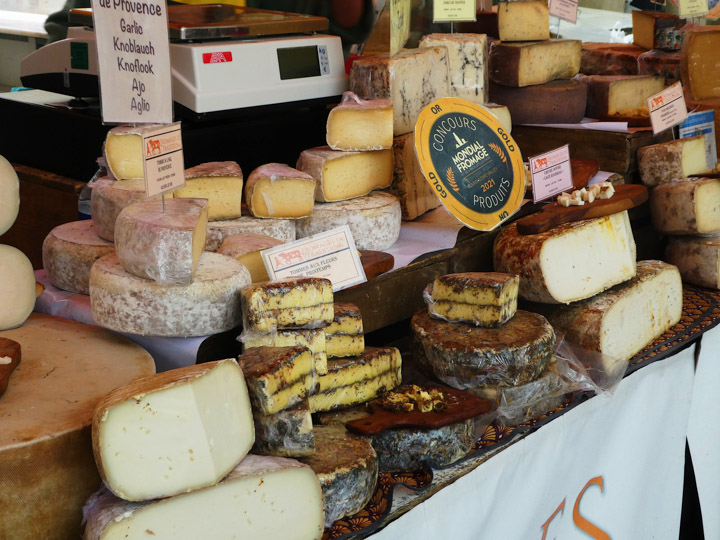
In our home we bought cheese from a local Fromagerie (cheese store) and artisan cheese makers at the farmers market. It was because of the cheese course that I learned that unpasteurized cheese tastes much better than pasteurized cheese!
2. Haute Cuisine
Haute cuisine first appeared in the 1800s and was later modernized by French chef Georges Auguste Escoffier when he published his book “Le Guide Culinaire” in 1903.
If you had to guess what haute cuisine means, you might be surprised by the reality.
Haute cuisine (high cuisine) actually celebrates premium ingredients that are typically not found in France. Food preparation and presentation for haute cuisine is extravagant for sure. And wealthy French people who could afford these indulgences loved it.
3. Nouvelle Cuisine
Nouvelle cuisine on the other hand is in direct contrast to haute cuisine and came about in the 1960s almost as a protest. Nouvelle cuisine centers around the freshest local flavors and minimal presentation.
4. The Three-Course Meal
At French restaurants, and even school cafeterias, the three-course meal is pretty common. In fact, many restaurants proudly offer a fixed three-course menu in addition to à la carte options.
I personally really appreciated how a meal with multiple courses forces you to slow down. I tend to take my time eating, even without more than one course, so it’s no surprise that the three-course meal won my heart right away.
5. French Lunch Breaks
You’ve probably heard that the French take long lunch breaks. In modern times this isn’t exactly accurate, most French workers get a typical hour for lunch.
But, during the pandemic a long-standing French labour law that prohibited employees from eating lunch at their desk was suspended. Yes in France it is not permitted to eat lunch at your desk! And more specifically, you are expected to leave your workplace entirely when having lunch.
This rule was originally put in place over a hundred years ago for health reasons. With contagious diseases and poor hygiene in factories, lunch away from the workplace would clear out the factories and encourage workers to eat in more sanitary settings.
Post-pandemic, this labour law has now been reinstated. These days it remains a part of French culture. Rumor has it that taking lunch away from the workplace makes for happier people – who knew!
6. Le Petit Déjeuner
In France, breakfast is referred to as le petit déjeuner (the little lunch).
A typical breakfast in the French home where I lived was plain unsweetened yogurt with a homemade fruit compote and some artisan bread and butter.
As I’ve mentioned a gazillion times on this blog, food in France was the best I’ve ever had. This simple breakfast was so delicious that when I went to bed at night I was excited to wake up and have it!
I’m told that my breakfasts were pretty close to a typical french breakfast …carbs (like a baguette), sweet (some jam or compote) and a hot drink (such as café au lait). Café au lait is coffee with steamed milk.
7. Michelin-Star Restaurants
French tops the list as the country with the most michelin-starred restaurants in the entire world. France has a whopping 632 restaurants with Michelin stars. If you’re curious, Japan is a distant second with 413 Michelin star restaurants.
8. French Fries
I’d be remiss if I didn’t give you a heads up that french fries are not French. French fries are believed to have originated in Belgium. And on that note, did you know that in Belgium they dip their french fries in mayonnaise rather than ketchup? True story and having visited Belgium I have first-hand accounts to prove it.
Traditional Dishes in France
Like all countries, France is not without traditional dishes that are served at a French restaurant, for special occasions, or just because.
9. Beef Bourguignon
This French version of beef stew has been around since the middle ages. But when the renowned French chef, Auguste Escoffier (who also modernized haute cuisine), published a recipe to make it at the turn of the 20th century, the popular dish found worldwide fame.
Boeuf Bourguignon, as the French call it, later faded away from the spotlight until another famous French chef, Julia Child published her version of the recipe in 1961.
10. Quiche Lorraine
Quiche Lorraine receives it name from the fact that the Lorraine region of France is the first place quiche was made. A true and classic quiche Lorraine is made only with eggs, heavy cream and bacon.
But these days people often add cheese, ham and sometimes onion…much to the dismay of quiche Lorraine purists! Many would say that once you anything other than bacon to a classic quiche custard…call it what you want, but it is no longer a quiche Lorraine.
11. Coq au Vin
Coq au vin (rooster with wine) is a traditional French stew made with chicken (technically a rooster) rather than beef, and simmered in a rich red wine broth. I wonder if the French were the first to come up with the idea of stewing meat in wine to tenderize it?
12. Bouillabaisse

This classic French fish soup originated in the seaside town of Marseille. Two things that differentiates bouillabaisse from other fish soups are the use of Provençal herbs and spices in the broth, and the method of serving. A true bouillabaisse serves the fish on a separate plate from the broth.
13. Salade Niçoise
There’s a town in the south of France called Nice (pronounced like niece, not like nice). The French word Niçoise means “in the style of Nice” and refers to cuisine of that region of France.
Niçoise salad is traditionally made of tomatoes, hard-boiled eggs, Niçoise olives and anchovies or tuna. It’s dressed with olive oil, or in some versions, a vinaigrette. Variations of this French meal pop up all the time including cooked vegetables like green beans and potatoes.
French Pastries
I can’t talk about French food without telling you about French pastries. Friends, I don’t even have a big sweet tooth and French pastries are something I’ll never forget.
In fact, my lack of a sweet tooth is probably why I love French pastries so much. If you appreciate desserts that are less sweet, unfrosted and made without processed ingredients, you’ll find your match in France.
The best place to buy a pastry is from a small local pâtisserie or bakery. Pâtisseries are like bakeries, but specialize in making pastries, tarts and cakes.
My top two favorite French pastries are the tarte aux abricots and pain au chocolate.
14. Tarte aux Abricots (Apricot Tart)
This typical French pastry is similar to what we know as a danish, but without the drizzle of frosting.
Picture a flaky danish-like pastry with some baked apricots and a little sugar in the center. A variation of this pastry can be made with any fresh fruits.
15. Pain au Chocolat (Chocolate Croissant)
Pain au chocolat is a croissant filled with real melted chocolate. Yes real chocolate, not fake chocolate-like product.
The French go all out with their desserts, what’s not to love about t

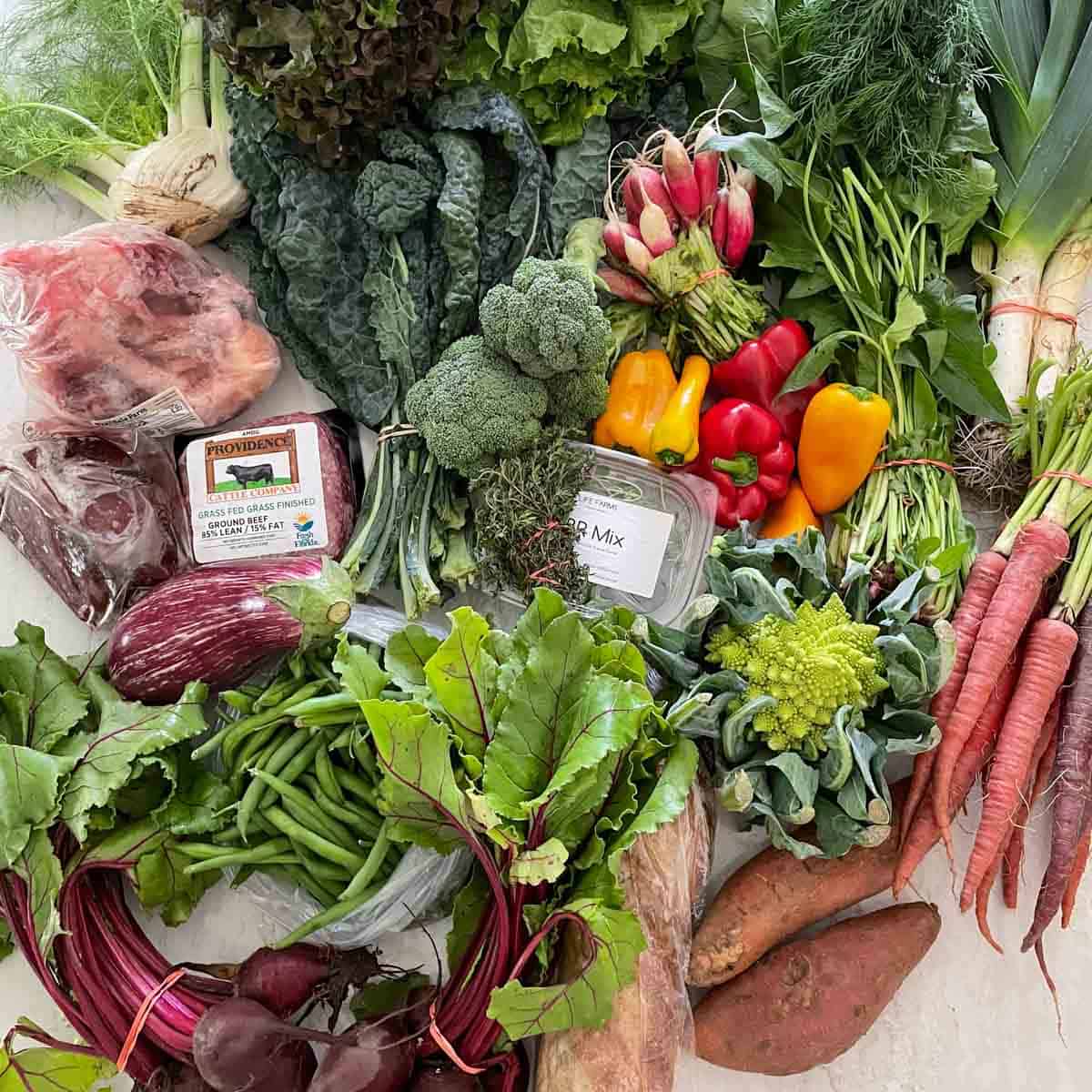
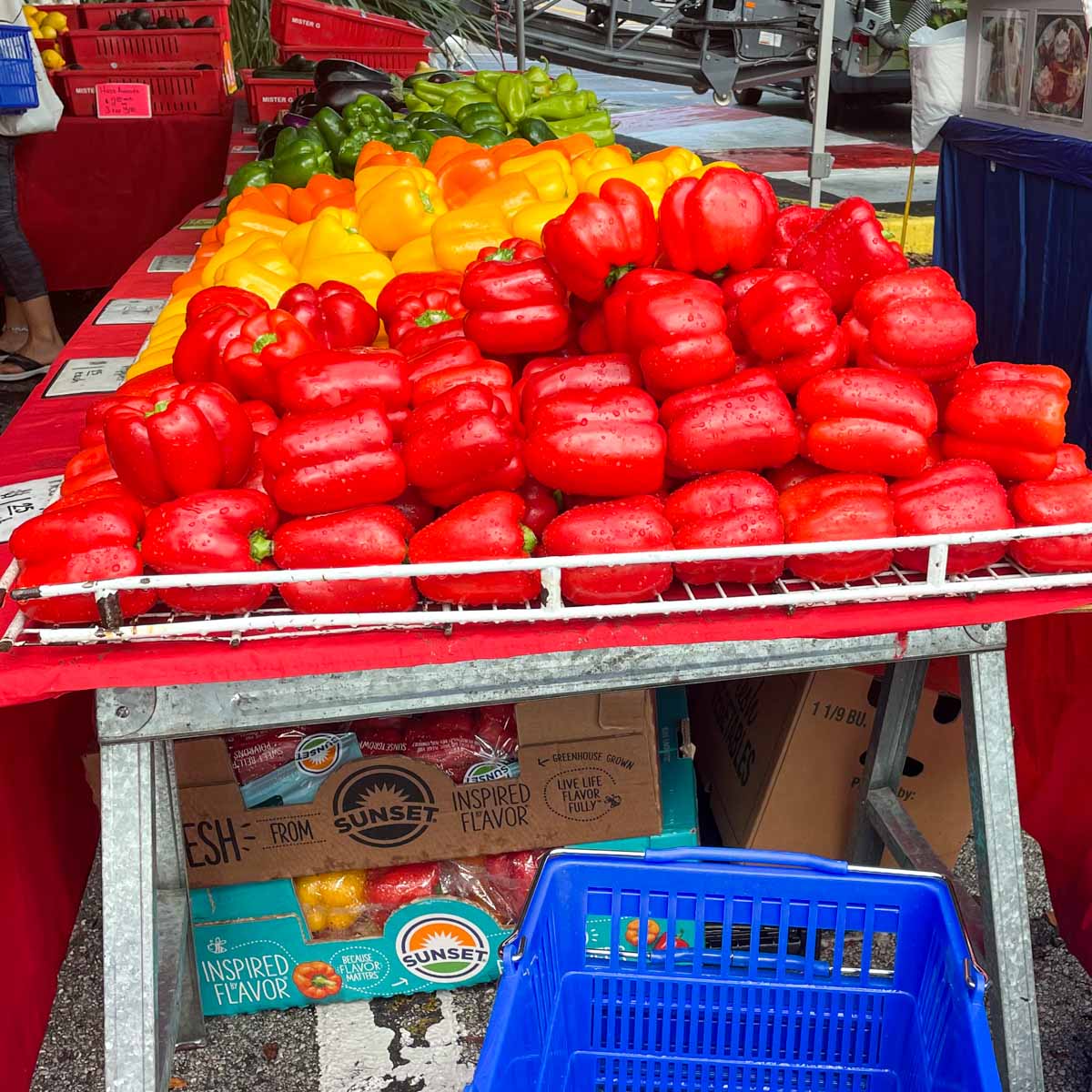


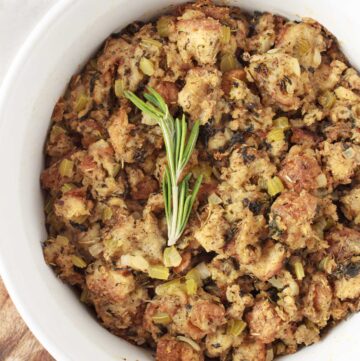
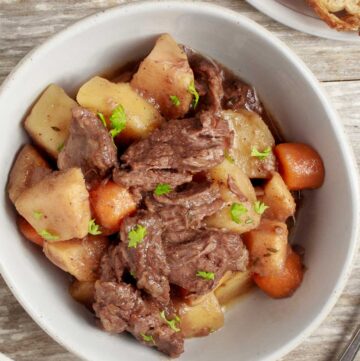

Leave a Reply